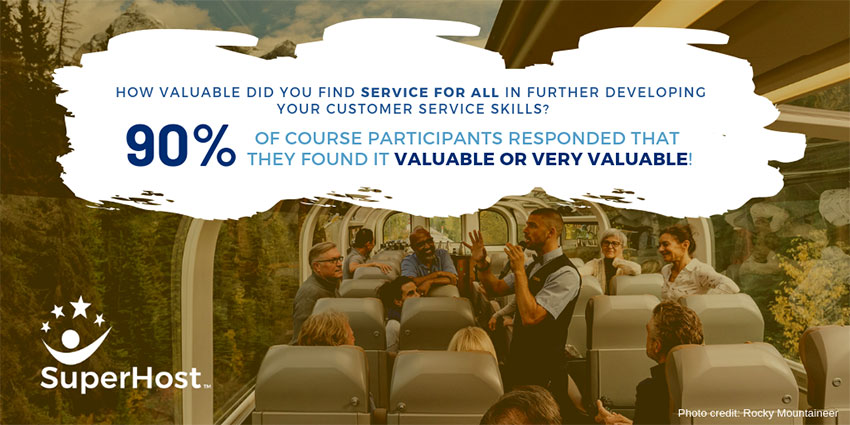May 4, 2016
The program was initially designed and piloted in 2004 by Patricia Brand, the faculty mentorship coordinator at Capilano College; it was established to bridge the gap between the realm of academics and the “real world” of work.
The program was created to help students build one-on-one relationships with tourism industry leaders, in order to:
- Aid in the student’s career development
- Give students a realistic appreciation of a management role
- Encourage the sharing of industry skills
- Guide the students in the formulation of their graduate thesis
- Help prepare students for success after graduation
The pilot project was so successful that the school decided to make it a graduation requirement. In three short years, over 50 students have completed mentorships, with an additional 26 in progress.
While almost all of the students have previously worked in tourism front-line jobs, the program is a gateway for students to approach senior managers and request the opportunity to learn from them directly. This experience offers students the chance to network, gives them access to the real life challenges faced by management and offers them the opportunity to learn about the evolution of their mentor’s career.
“After reading the students’ journals about their mentorships, I am absolutely convinced that this is a valuable learning exercise for them. I believe that this experience will encourage young people to make their careers in tourism, just as their mentors have done,” says Patricia.
A vast number of success stories have resulted from the program, including an aspiring travel writer whose mentor coached her through the process of marketing her stories, resulting in her first piece of published work, and a young woman who was inspired to make tourism conservation the focus of her career after her mentor invited her to a conference on the subject.
Cyndie Martinez, senior manager of agency and supplier relations for Cantrav Leisure Services, was part of one such success story. Cyndie introduced her mentee to a number of industry contacts, organized informational lunches and encouraged her mentee to enhance her thesis by devising surveys and engaging the media. “My mentee focused her thesis on developing a marketing strategy to increase tourism in New Westminster; as a result a new position was created specifically for her at Tourism New Westminster,” says Cyndie, who is obviously thrilled at her mentee’s success.
While the students benefit immeasurably, there is little doubt that their mentors also gain something valuable from the experience. “The amazing thing was that I benefited from the experience almost as much as she did. I got to see my profession through fresh eyes, and it gave me a whole new perspective. It reminded me of what it was like to be just starting out, and I got to look back on how much I’ve accomplished. It really renewed my level of enthusiasm,” says Cyndie.
Stephen Pearce, vice president of leisure travel & digital marketing at Tourism Vancouver, agrees that the benefits of mentorship are two-fold: acting as a mentor enables him to give back to the institutions that helped shape his success, while simultaneously offering him a means to recharge his batteries. “I always learn something from the experience. Not only does the process reacquaint me with what students are learning in the academic realm, it also challenges some of the assumptions and thinking in my environment that might have gotten a little “stale” over time. I always find the mentor/mentee relationship to be intellectually stimulating,” says Stephen, who notes that gaining a fresh perspective also helps him approach ongoing challenges in his business environment.
Patricia agrees that the students aren’t the sole beneficiaries of the program. “With the labour market being increasingly competitive, we are hoping that the mentors learn how to bring younger, less experienced managers “up to speed” on what it takes to be successful,” says Patricia, who is quick to point out that the time commitment required is minimal when compared with the results.
“Mentorship is a commitment that I would encourage anyone from the business community to consider undertaking. The obligation of time is very modest – And it can make a difference,” says Stephen.
Return to top

